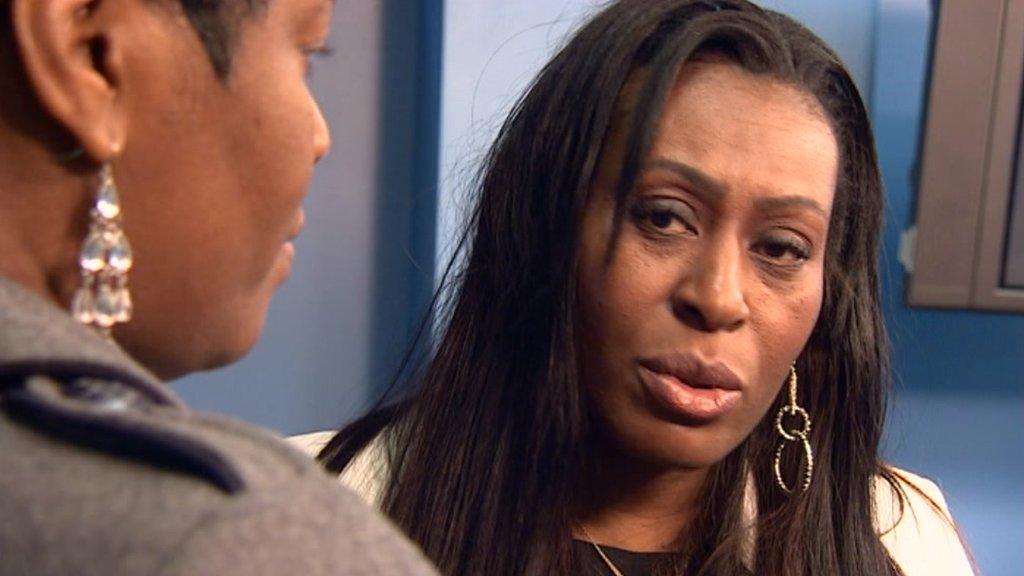UK stabbings: Is austerity causing rising knife crime in Birmingham?
- Published
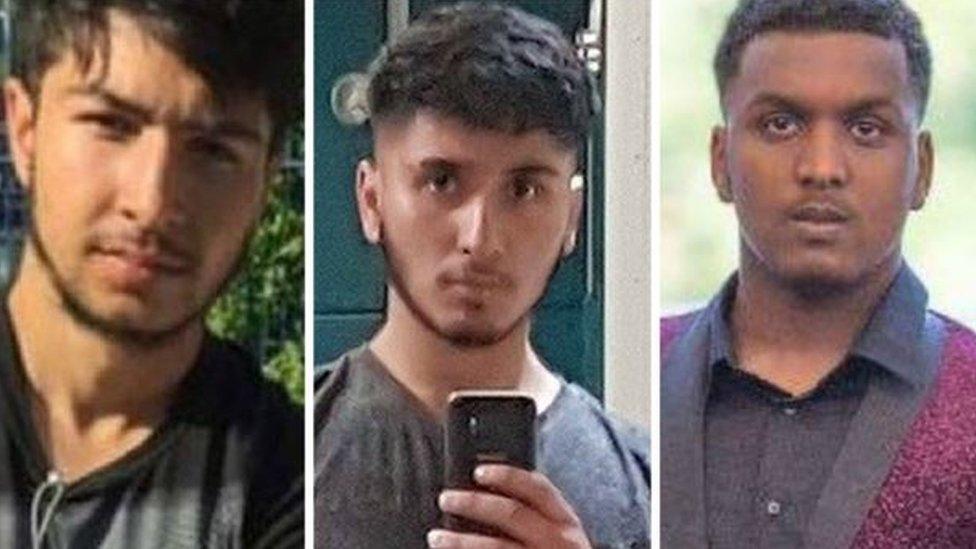
The three teenagers stabbed to death in 12 days: (l-r) Hazrat Umar, 18, Abdullah Muhammad and Sidali Mohamed, both 16
One hundred people have been stabbed to death across the UK since the beginning of 2019. Three of those were teenagers in the West Midlands, all killed within the space of 12 days. People are now asking whether austerity is to blame.
On the afternoon of Wednesday, 13 February, just outside the gates of a sixth form college in east Birmingham, an A-Level student is stabbed in the chest.
Paramedics and police rushed to the aid of Sidali Mohamed, an aspiring accountant who fled war-torn Somalia with his family as a toddler.
Two days later, surrounded by his family in hospital, the 16-year-old Joseph Chamberlain College student's life support machine was switched off and he died from his injuries.
A week after Sidali was stabbed, West Midlands Police launched another murder investigation as a second teenager was knifed to death.
Yards away from a nearby primary school, in Small Heath, south-east Birmingham, Abdullah Muhammad was stabbed in the back and chest.
Abdullah, also aged 16, died at the scene - a park close to where he lived.
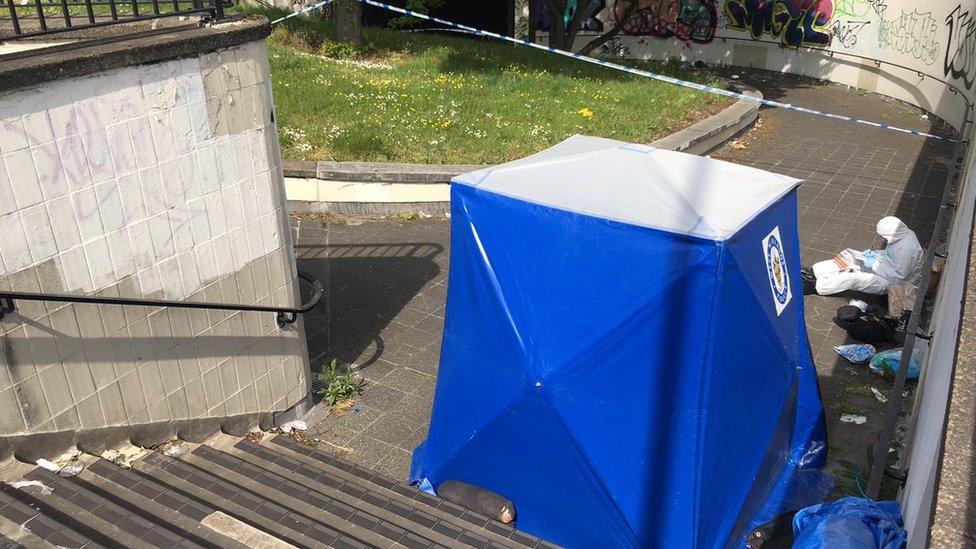
The majority of those stabbed to death in the West Midlands in 2019 have been teenagers
By the end of the week detectives had begun a third murder investigation, the time into the death of an 18-year-old boy.
Electrical engineering student Hazrat Umar was found injured on a road in Bordesley Green on 25 February.
A relative of Nazir Afzal, a former chief prosecutor, Mr Umar became another victim to Birmingham's knife crime.
Eight of the 100 victims to have been stabbed to death in 2019 have been killed in the West Midlands - but Mr Afzal fears the knife crime problem is far bigger.
"The statistics show murders, but do not show the attempted murders and GBHs," Mr Afzal says.
"Hundreds of people have survived violence because of the skilled work of paramedics and medical staff. It masks a bigger problem."

Stabbing victims in 2019
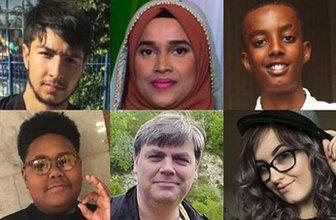
One hundred people have been fatally stabbed in the UK so far this year. The motives and circumstances behind killings have varied - as have the age and gender of the victims.

Last month, Jack Harley, a 14-year-old boy with learning difficulties from Halesowen, almost became another statistic.
The teenager was attacked with a knife and robbed while sitting on a bench in a park in Dudley.
Receiving a deep gash to his right arm, Jack needed 14 staples and underwent a series of operations.
"He was very close to the artery being cut," says his mother, Diane. "We've got to stop it."
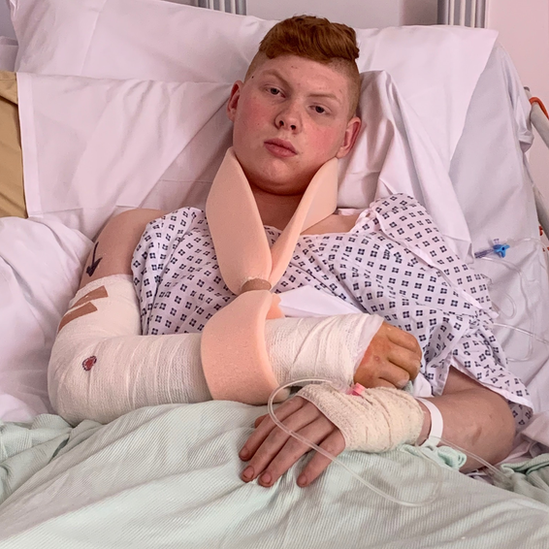
Jack Harley was stabbed as he was robbed in Birmingham
The spate of killings has led the chief constable of West Midlands Police to describe knife crime as "an emergency" as pressure mounted for solutions to be found fast.
But for former police officer Kirk Dawes, the solution is obvious: he partly attributes the rise in knife crime locally to the axing of a mediation service he had run, which settled disputes between gangs.
Sorry, your browser cannot display this map
"Every time I hear a murder where some kind of conflict resolution service could have been utilised, it hurts in here," he says, pointing to his heart.
"Something that was working so well was literally thrown away."
New Year shootings
In 2004, Mr Dawes - then a police detective - was tasked with setting up a unit that would mediate conflicts and stop them from becoming deadly.
Mr Dawes helped pioneer a new approach to combating serious violence in the wake of the killing of teenagers Charlene Ellis and Letisha Shakespeare, who were gunned down in a drive-by shooting as they left a party in Birmingham in the early hours of 2 January 2003.
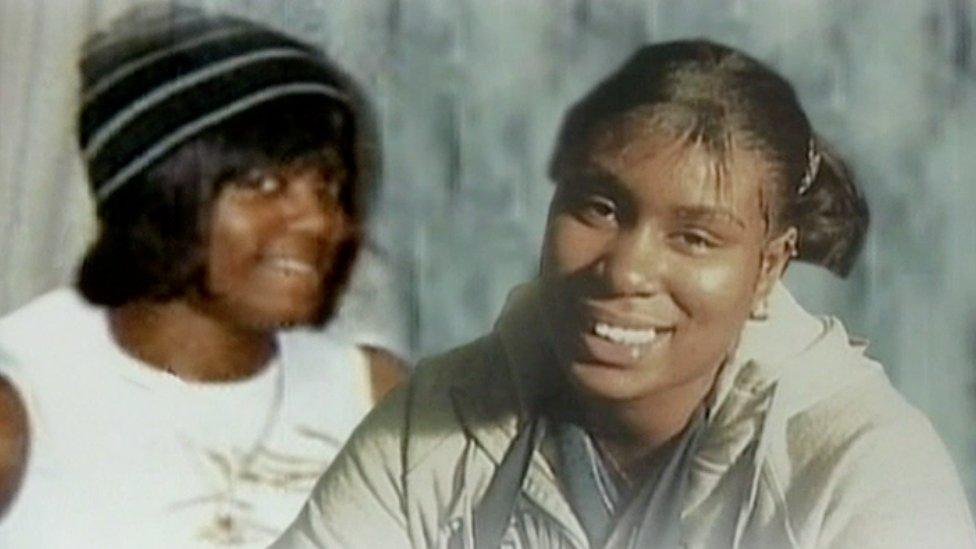
Charlene Ellis, 18, and Letisha Shakespeare, 17, were shot with a sub-machine gun in Aston, Birmingham, in 2003
They were the innocent victims of a dispute between two notorious gangs in the city.
Drawing on conflict resolution tactics used to defuse disputes in Northern Ireland and among gangs in the US, Mr Dawes worked with trained mediators as part of a body called Birmingham Reducing Gang Violence (BRGV).
They shuttled between feuding groups, finding ways to settle conflict without violence.
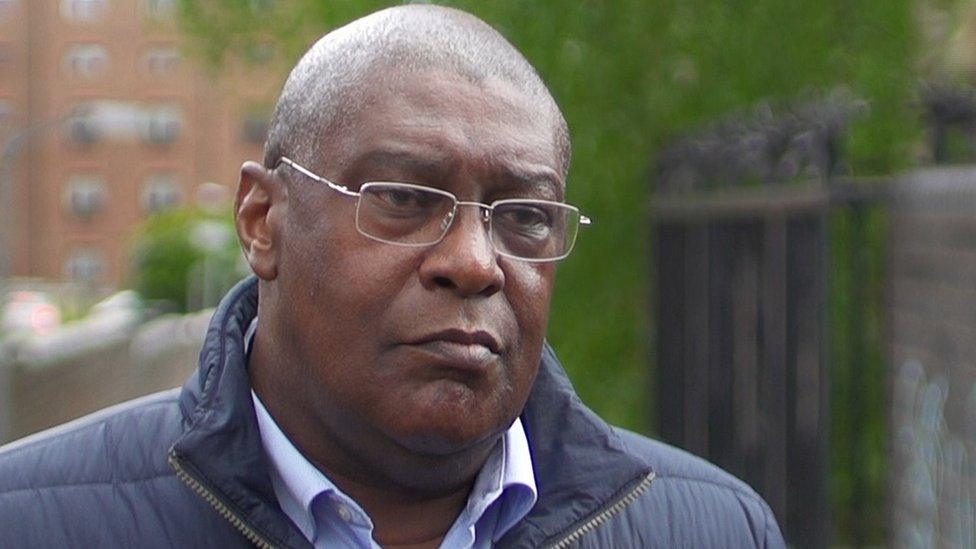
Kirk Dawes ran The Centre for Conflict Transformation (TCFCT) between 2004 and 2012
It seemed to work: Mr Dawes says there were 27 gang-related murders in 2004. By 2010 there were three.
Then the scheme was scrapped.
By the end, he says, the 35 trained mediators, who specialised in sitting face-to-face with possible killers, were being asked to work on a zero-hours contract.
"The catalyst for that was austerity," Mr Dawes says now. "The draconian way in which money was taken away from community organisations has led to where we are now."
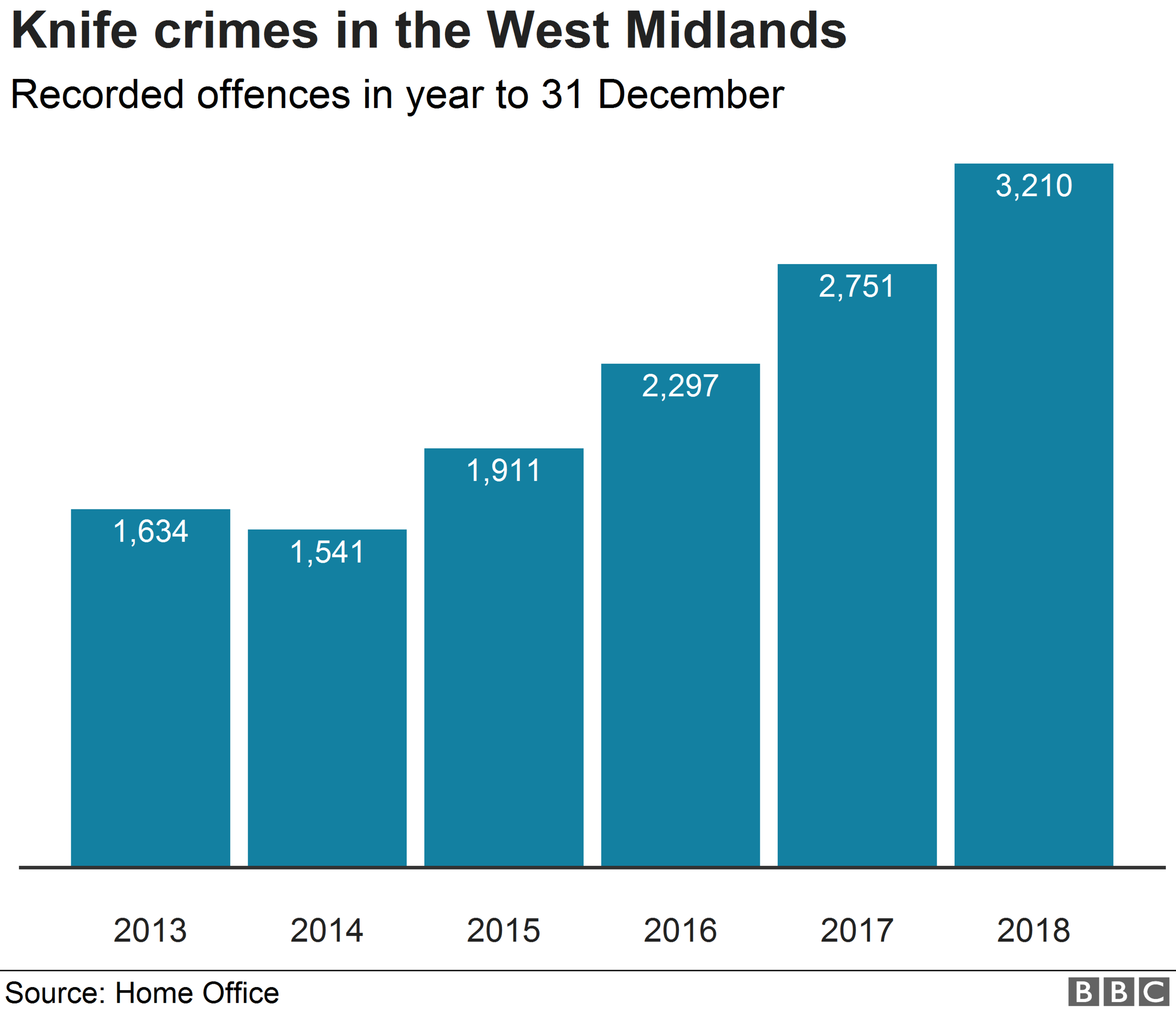
Since the BRGV was axed, knife crime has steadily risen in the West Midlands, with the number of people being stabbed to death spiking in the last two years.
There is no agreement on what is driving the recent increase.
Senior police officers blame drug dealing, robberies and young people feeling like they have to defend themselves. Elsewhere, social media is in the frame.
The current chief constable of West Midlands Police, Dave Thompson, was not in charge when the decision was made to axe Mr Dawes' mediation unit.
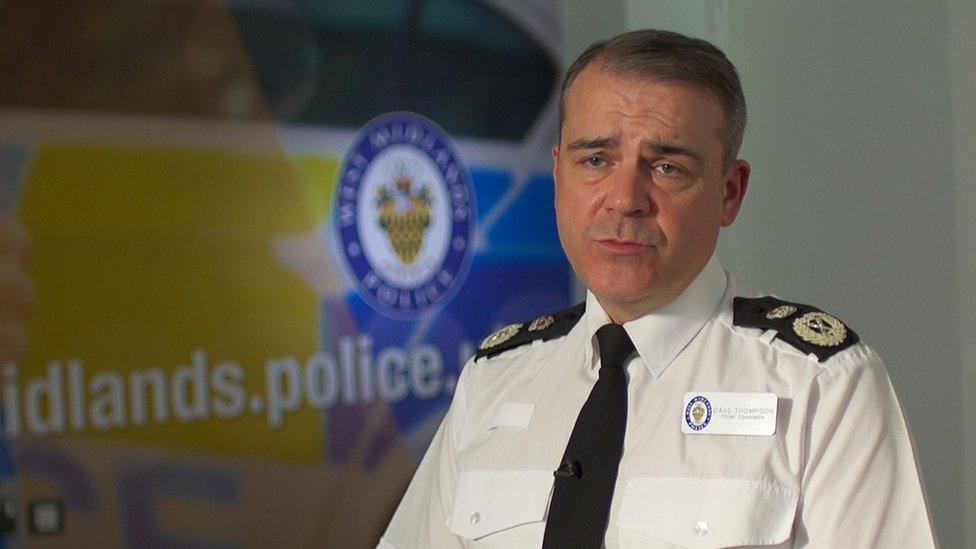
Dave Thompson has been the chief constable of West Midlands Police since January 2016
He says the force has faced "some very tough choices".
"You can't make the level of reductions by keeping everything the same," he says.
However, he concedes that "with hindsight" it would have been better to retain the unit.
Later this year a new mediation service will be introduced at a cost of £100,000 a year - seven years after BGRV was scrapped.

Research published last week found that councils with large cuts to youth services were more likely to have seen an increase in knife crime.
The all-party parliamentary group on knife crime said that the average council cuts to youth services was 40%, but for some services in the West Midlands it was closer to 90%.
Austerity makes itself felt in another way too, according to Mr Thompson, serving to slow down some of the more detailed investigations which are often launched following a homicide.
"In some cases of violence, the investigation won't move at the same pace as it would have in the past.
"The leg work of detective work in some of these cases, the examination of phones, the digital media that takes time, effort of skilled resources."
West Midlands is facing acute pressures.
Birmingham is a young city. Almost half of its one million population is under 25, so the policing priority is to reduce street violence among that group.
"It has got the appearance that those people who are inclined to violence are actually becoming more violent," says West Midlands Police and Crime Commissioner David Jamieson.
"If you'd asked me the question about the common themes in the violence four or five years ago a lot of it was around gangs.
"That is still true today. Some of it is around gangs but it's across all people now. We're seeing what used to be a small act of violence - perhaps a slap or a punch - turn into something far more serious."
'Immunity'
Nationally, a lot of hope has been pinned on the so-called "public health approach" to tackling violence.
West Midlands Police believes it is a vital strategy, alongside tougher policing.
Sorry, your browser cannot display this map
At Coundon Primary School, in Coventry, a class of lively Year 6 pupils learn about being "mentors in violence prevention", as part of a new scheme in the region.
Using scenarios they teach each other the resilience needed to stand up to the challenges they will face in life.
They learn about bullying, grooming and dealing with the pressures not to "snitch".
It is another demand heaped onto busy teachers.
Head teacher Jayne Ellis says there was a stabbing just around the corner from the school the night before she spoke to the BBC.
"Some of these children we've had since they were three," she says.
"If we can give them those messages at least we've given them the skills to deal with whatever predicament they find themselves in.
"They trust us implicitly. They trust each other. We are like a family."
- Published1 March 2019
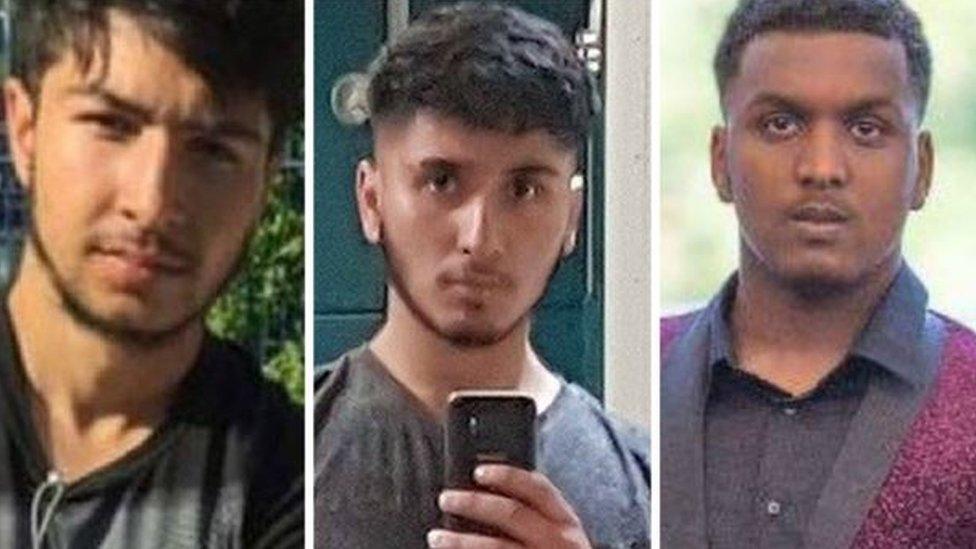
- Published7 May 2019
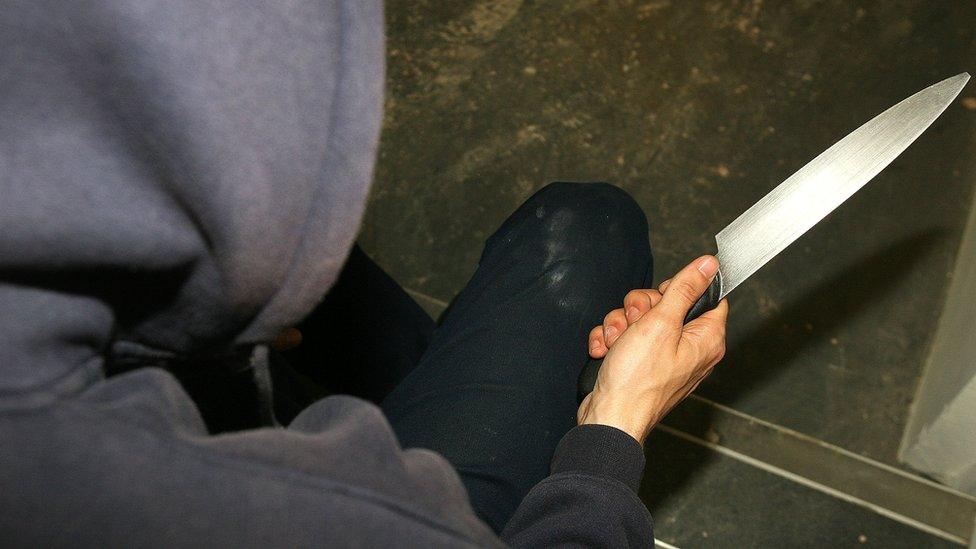
- Published6 March 2019
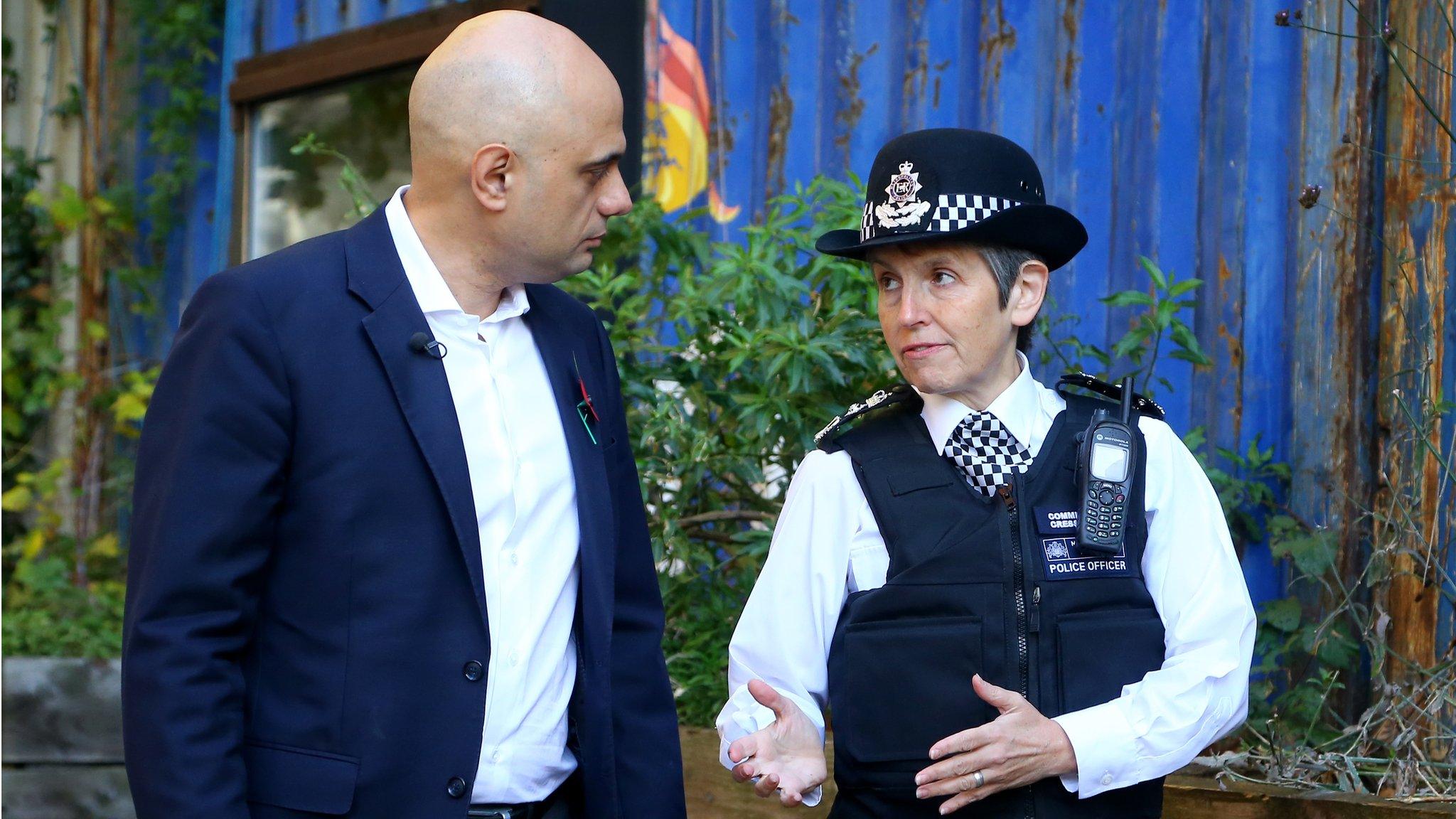
- Published2 January 2013
